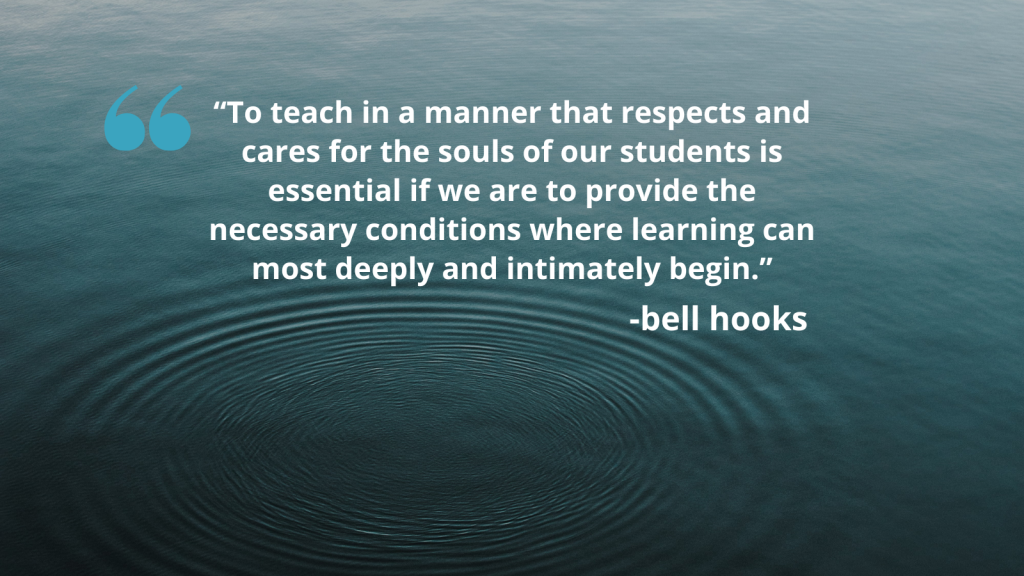Introduction

As educators, our goal is to create a ripple effect in our classrooms — a great way we start to have an impact is with our curriculum and resources used. Our approach to teaching and learning – and the frameworks we use to teach and learn – play a role.
Teaching is hardly neutral — be it what you teach or how you teach it. The stories we tell and the truths we speak (or don’t speak) matter. Intentionally or not, how you ask students to learn and demonstrate their learning may privilege some while harming others. There are proactive strategies that can support you as you work to create a more equitable and inclusive learning experience, regardless of whether your role in this field is as a teacher, librarian, administrator, technologist, or something else. In this section of the guide, you can think of pedagogy as the methods and practices that guide your creation and support of learning experiences in the classroom.
Before you begin designing your OER, reflect on your own learning experiences. What are your own ways of thinking and learning? How does this influence how you teach or work with others? For example, I have difficulty learning and understanding when content is in academic language, so I tend to teach by breaking concepts down to simple, plain language and building from there. Others may learn best with more technical terminology. Neither ways of learning are wrong, per se, but it is important to look at how we learn, how that impacts our teaching, and how that may be a pathway for some and a barrier for others. Thinking back on your own experiences can be a great starting point when thinking about the needs of your students. From this point, you can easily expand outwards — asking colleagues at your institution, people in your field, and most importantly the students you work with what their learning needs are.
Pause & Reflect on your own learning experiences
- What do you find most beneficial to your learning?
- Are there barriers to your own learning? If so, what are they?
- What do you remember of past teachers of yours that made you feel welcome, heard, and engaged?
- Did everybody else in that classroom feel as engaged, heard, and welcome as you did?
- Think of your students – do they have particular interests, barriers to learning, or accessibility?
Resources:
hooks, bell. (1994). Teaching to transgress: education as the practice of freedom. Routledge.
Media Attributions
- Pedagogy with care. © Ian Keefe adapted by Kaitlin Schilling is licensed under a CC BY (Attribution) license

